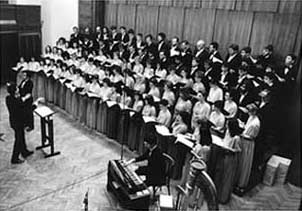JEWISH CULTURE OF MUSIC
Jewish music continues to exist wherever there are Jews, which is almost everywhere in the world. Jewish music is as vast and varied as all the music in the world. There are Jews living in countries as diverse as India, Russia, Europe, Asia, Ethiopia, America, Argentina, Australia, and Israel.

Music has a central place in Jewish life both in the synagogue and home. Liturgical music, holiday music, and Jewish folk music have often been based on folk melodies found in the particular country in which Jews settle. Jewish music typically incorporates musical ideas and styles from all the countries in which Jews have settled as well as the stylistic elements of the countries from which they may move. The music is often passed down in the oral tradition from one generation to the next without musical notation. Jewish songs can be in Hebrew, English, Yiddish, Ladino and Arabic.
Nigunim (songs without words) are customarily sung by Orthodox and Chassidic (ultra-orthodox) Jews around the table after Sabbath or festive meals. Although there is much emphasis on vocal music in Judaism, there is also instrumental music without accompanying text. For hundreds of years, klezmer groups have played for all kinds of festivities and ceremonies in Eastern European Jewish life. Klezmer music reached a peak in Prague in the Czech Republic, in the mid-1400s. Traveling klezmer musicians were sought for Jewish as well as Christian festivities. Although klezmer music’s popularity declined in the last century, klezmer bands have once again become popular in the United States and parts of Europe and Israel.

Music plays a central role in Jewish religious life. There are several different religious branches within Judaism, each one with its own musical traditions. The primary ones are Orthodox, Conservative, and Reform. In Orthodox Judaism, only men sing in synagogue. Instruments are not permitted in the synagogue during Sabbath services or religious observances, except for the shofar (a ram’s horn), which is blown on the High Holy Days of Rosh Hashanah (The Jewish New Year). Within the Conservative and Reform movements in Judaism, women play a more central role, singing in synagogue choirs and serving as both rabbis and cantors. In most Reform and some Conservative synagogues instruments such as organ and guitar are played on the Sabbath to accompany singing.
